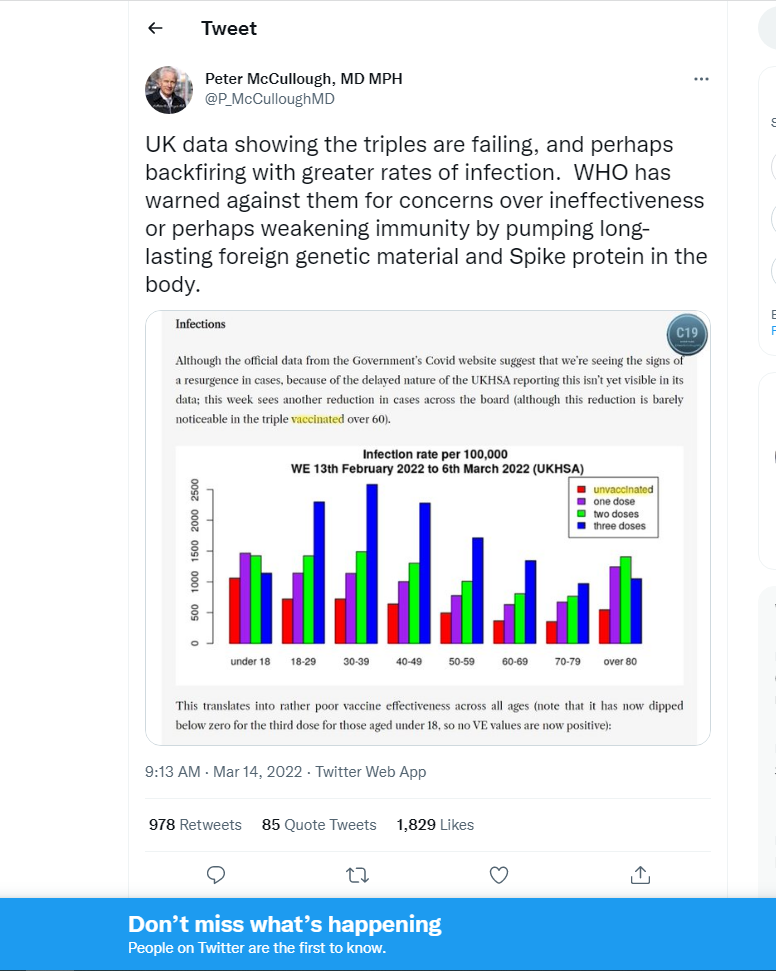simple, out the officer, post his address etc and let the people harass him. that is when this stuff stopsShooting one person? Meh, they killed 1200 testing a pharmaceutical concoction before passing it as safe.
There's an agenda and they don't care.
Join the Hide community
Get access to live stream, lessons, the post exchange, and chat with other snipers.
Register
Download Gravity Ballistics
Get help to accurately calculate and scope your sniper rifle using real shooting data.

Install the app
How to install the app on iOS
Follow along with the video below to see how to install our site as a web app on your home screen.
Note: This feature may not be available in some browsers.
You are using an out of date browser. It may not display this or other websites correctly.
You should upgrade or use an alternative browser.
You should upgrade or use an alternative browser.
PortaJohn
- Thread starter Lowlight
- Start date
-
- Tags
- sniper's hide
Besides the lenient sentence...this is another travesties of our "open border" policies. You know, the one that lets in Rapists.
"F**king Disgraceful" - Donald Trump Jr. Responds to America's Two-Tiered Judicial System after Rapists Are Sentenced to Probation While Peaceful Trump-Supporters Rot in Jail | The Gateway Pundit | by Jim Hoft
Two foreign nationals another man were recently sentenced to 48 months of probation after they raped a 14-year-old girl and filmed it.www.thegatewaypundit.com
hahahaha, awesome
Hitler was a failed liberal arts student (painter)who blamed all the country's problems on the rich.Hitler achieved notable economic and diplomatic successes during the first five years of his rule. Hitler substantially revived the economy. Unemployment, so pivotal in bringing him to power, had dropped from 6 million to less than 1 million between 1933 and 1937, this at a time when the US was still wallowing in the Depression. National production and income doubled during the same period. This was partly owing to Hitler's rearmament policy, but also to more benign forms of public spending. The world's first major highway system, the autobahns, began snaking across the country, and there was talk of providing every citizen with a cheap, standardized car, the people's car, or Volkswagen.
Nazism took root in the world's most powerful scientific culture, boasting half of the world's Nobel Prizes and a sizable fraction of the world's patents. German science and medicine were the envy of the world, and it was to Germany — the "land of scholars and poets" — that many academic hopefuls flocked to cut their scientific teeth.
The Third Reich cannot be thought of as an icebound retreat into intellectual slumber: think of television, jet-propelled aircraft, guided missiles, electronic computers, the electron microscope, atomic fission, data processing, industrial murder factories, and racial research—all of which either were first developed in Nazi Germany or reached their high point at that time. There are innovations in the area of basic physics (nuclear fission, discovered by Otto Hahn and Lise Meitner in 1938), hormone and vitamin research, automotive engineering (the Volkswagen was supposed to be the "people's car"), pharmacology, and synthetic gasoline and rubber (I. G. Farben in 1942 controlled more than 90 percent of the world's synthetic rubber production). The nerve gas sarin and the chemical warfare agent tabun are both I. G. Farben inventions of Third Reich vintage — as is the opiate methadone, synthesized in 1941, and Demerol, created about this time with the name "pethidine."
There are many other examples. Nazi aeronautic engineers designed the first intercontinental ballistic missiles—never actually assembled—and it was Germans in the 1940s who built the first jet ejection seat. German engineers built the world's first autobahns, and the world's first magnetic tape recording is of a speech by Hitler. The first television broadcast strong enough to escape the planet featured Hitler's speech at the opening of the 1936 Berlin Olympics.
The Hitler regime introduced major changes in individual programs and program administration. In 1934 the regime dismantled the self-governance structure of all social insurance programs and appointed directors who reported to the central authorities. The regime made many improvements in social insurance programs and benefits, but these changes were conceived to serve the regime rather than the population. In 1938 artisans came to be covered under compulsory social insurance, and in 1941 public health insurance coverage was extended to pensioners. In 1942 all wage-earners regardless of occupation were covered by accident insurance, health care became unlimited, and maternity leave was extended to twelve fully paid weeks with job protection.
During the Hitler era (1933-45), the economy developed a hothouse prosperity, supported with high government subsidies to those sectors that Hitler favored because they gave Germany military power and economic autarchy, that is, economic independence from the global economy. Hitler claimed to have achieved full employment in Germany by 1939. There were still five million Americans unemployed at the end of 1941. Hitler's Germany had long since absorbed its unemployment by building arms and German infrastructure.
The Germany Economy Under Hitler
GlobalSecurity.org is the leading source for reliable military news and military information, directed by John Pikewww.globalsecurity.org
“For what shall it profit a man, if he shall gain the whole world, and lose his own soul?”
Mark 8:36
He was a vegeterian who supported gun control and universal heathcare, and said a segment of the population didn't really count as people, so it was legal to kill them.
Does that sound more like a current liberal or conservative?
Nevermind that fascism, socialism, or communism are all collectivist, completely opposite of the right wing, where individual freedom and autonomy are highly prized.
I read this assessment
Maybe they are beginning to learn something about many...if not, they deserve the inevitable outcome which will, hopefully, be a lawful and peaceful one but if not...
Someone once said that "every time you hunt, you learn something". I believe that
vAxXeD tO ThE mAaxXXx brOooOoo.
sorry if noses get bent out of shape, those peoples problem, not mine...
this right there tells anyone all they need to know as to why the west has invaded so many countries over the past many decades.

Fake-Raine: One Man’s Trip Through the Hollywood Movie Set We Know as Ukraine
Earlier this month wanting to document the truth about Ukraine, Lez LuTHOR, a self-described illusion warfare correspondent, took it upon himself to make the trip. And as any good war corresp…
 dailyexpose.uk
dailyexpose.uk
Have I mentioned lately...FBHO! MacAww........He has a cold! Nothing really to see here.
That article is incredibly short-sighted, or so narrow in scope, it kind of forgets to mention that while [evil] Russia is skeptical of [evil] China, the [oftnetimes idiot] US is sourcing its slave labor for the majority of everyday consumer goods from China.
Lies by omission are still lies.
That's unreasonable to wish that upon someone. I'm sure as he was taking his last breaths some thoughts went went through his mind "what if I was wrong?", "what if they were right?"Hope it was painful and prolonged
Imagine coming to that moment of true cognitive dissonance on your deathbed with nowhere to turn for help, or a way out.
I've seen that in person a couple times at the moment someone died. Leaving this life with a tortured conscience is quite a sight to behold.
Hey - this is VERY important. At 10:27 Dr. Martin talks about Pfizer getting out of all pharmaceuticals and going purely into the mRNA vaccine business with TEN in the works already, one of which is for a mosquito-born encephalitis.
I know someone here recently posted about genetically modified mosquitoes being release in Florida and California on 3/09/2022. Gates has completely funded this genetically modified mosquito project. I found this one:

Ignore the “Tripledemic” Hype Despite warnings from public-health and media “experts,” the seasonal return of respiratory viruses doesn’t justify the reimposition of Covid-era controls. Joel Zinberg, M.D., J.D.
https://www.city-journal.org/ignore-the-tripledemic-hype Winter is back, and so are warnings from “experts” for Americans to don masks. A resurgence of influenza (flu) and respiratory syncytial virus (RSV)—respiratory illnesses that took a holiday during the Covid-19 pandemic, when various...
Quote from above:
An independent peer-reviewed study from Yale University scientists revealed that over two years of continual releases of the GE mosquitoes at a test site in Brazil failed to reduce populations of Aedes aegypti.
The Yale study also found that the GE mosquitoes bred with local Aedes aegypti, resulting in hybrid mosquitoes in the wild that may be more aggressive, more difficult to eradicate and may increase the spread of mosquito-borne disease.
Sure we will be told its for an own good, but I think we are smarter now (just not smart enough to stop it though). Releasing into to Florida and California - its a way to deliver two sets of mosquitoes that will eventually work their way all across America.
There has been an uptick in once very rare in US Dengue Fever recently ("breakbone fever" because it causes such intense bone pain). Interestingly, there was a "smaller" release of these GM mosquitoes in Florida and Texas in April of last year; this was the Dengue map for 2021:
States and territories reporting dengue cases – United States, 2021 (as of January 5, 2022)

*CDC reports provisional dengue case counts reported to ArboNET for the United States and its territories on the first Thursday of each month.
My gut tells my something truly evil and awful is awry.
If somebody can find out what the other 9 mRNAs vaccines are coming up, might be very interesting.
Last edited:
Hey - this is VERY important. At 10:27 Dr. Martin talks about Pfizer getting out of all pharmaceuticals and going purely into the mRNA vaccine business with TEN in the works already, one of which is for a mosquito-born encephalitis.
I know someone here recently posted about genetically modified mosquitoes being release in Florida and California on the 3/09/2022. Gates has completely funded this genetically modified mosquito project. I found this one:

Ignore the “Tripledemic” Hype Despite warnings from public-health and media “experts,” the seasonal return of respiratory viruses doesn’t justify the reimposition of Covid-era controls. Joel Zinberg, M.D., J.D.
https://www.city-journal.org/ignore-the-tripledemic-hype Winter is back, and so are warnings from “experts” for Americans to don masks. A resurgence of influenza (flu) and respiratory syncytial virus (RSV)—respiratory illnesses that took a holiday during the Covid-19 pandemic, when various...ussanews.com
Sure we will be told its for an own good, but I think we are smarter now (just not smart enough to stop it though). Releasing into to Florida and California - its a way to deliver two sets of mosquitoes that will eventually work their way all across America.
There has been an uptick in once very rare in US Dengue Fever recently ("breakbone fever" because it causes such intense bone pain.
My gut tells my something truly evil and awful is awry.
If somebody can find out what the other 9 mRNAs vaccines are coming up, might be very interesting.
Pfizer going all in on the MRNA tech.........because the first try was so successful.
Certainly wasn't successful at Covid but must have accomplished something.
Moderate beheaders ,mass beheading
"The number of executed surpassed even the toll of a January 1980 mass execution for the 63 militants convicted of seizing the Grand Mosque in Mecca in 1979, the worst-ever militant attack to target the kingdom and Islam's holiest site," ABC described of the prior record.
Saudi Arabia Just Beheaded 81 People In One Day
"Saudi Arabia on Saturday executed 81 people convicted of crimes ranging from killings to belonging to militant groups, the largest known mass execution carried out in the kingdom in its modern history,"The number of executed surpassed even the toll of a January 1980 mass execution for the 63 militants convicted of seizing the Grand Mosque in Mecca in 1979, the worst-ever militant attack to target the kingdom and Islam's holiest site," ABC described of the prior record.
You're nuts!! It was very successful, just look at their bank account. Then look at how many stood in line for hours in all kinds of foul weather to get the jab. They will do it again and again as soon as the Pravda turns on the fear porn.
I know what you mean. As far as it being effective in protective way, not!!Pfizer going all in on the MRNA tech.........because the first try was so successful.
Certainly wasn't successful at Covid but must have accomplished something.
And all they have to do is pay the talking heads to chant the mantra "safe and effective" and half the country will remain fleeced no matter what.You're nuts!! It was very successful, just look at their bank account. Then look at how many stood in line for hours in all kinds of foul weather to get the jab. They will do it again and again as soon as the Pravda turns on the fear porn.
I know what you mean. As far as it being effective in protective way, not!!
Made them MONEY!Pfizer going all in on the MRNA tech.........because the first try was so successful.
Certainly wasn't successful at Covid but must have accomplished something.
Sorry if this was posted elsewhere. Say goodbye to First Amendment Right.

 www.thegatewaypundit.com
www.thegatewaypundit.com

Mayorkas Releases New Rules on Extremism - DHS Will Target Anyone Who Believes Election Was Stolen or Who Challenged Fauci's Everchanging COVID Narrative | The Gateway Pundit | by Jim Hoft
In Joe Biden’s first year in office over 2 million illegal aliens from dozens of countries walked into the United States across the southern border.
If you are not wearing these masks now you are officially a Putin supporting, anti vax NAZI, Republican.

Saudi Arabia Just Beheaded 81 People In One Day
"Saudi Arabia on Saturday executed 81 people convicted of crimes ranging from killings to belonging to militant groups, the largest known mass execution carried out in the kingdom in its modern history,
"The number of executed surpassed even the toll of a January 1980 mass execution for the 63 militants convicted of seizing the Grand Mosque in Mecca in 1979, the worst-ever militant attack to target the kingdom and Islam's holiest site," ABC described of the prior record.
Turns out most of them were Houthi terrorists. I guess some people actually punish terrorists, and some give them the keys to the kingdom with a fully equipped arsenal!
It's because the faggots and pedophiles like to recruit and groom their victims.
Tennessee has got the ball rolling on a “Divisive Concepts” law that has the lefties in higher ed spinning. It prevents your ability to teach any concept that portrays one race of being inherently privileged. It also allows students and faculty who are subjected to this type of training or curriculum to seek a legal remedy. They are spinning around worse on this than when the mask mandates were eliminated.
Tennessee has got the ball rolling on a “Divisive Concepts” law that has the lefties in higher ed spinning. It prevents your ability to teach any concept that portrays one race of being inherently privileged. It also allows students and faculty who are subjected to this type of training or curriculum to seek a legal remedy. They are spinning around worse on this than when the mask mandates were eliminated.
Good. I read an article a while back about a mixed race child. One parent was white and the other was black. The child has a very dark complexion. So the teacher spewing the "white is privileged and evil" crap assumed that both of the child's parents were black.
He was upset when the faculty at the school started preaching that white people are evil and privileged. And why wouldn't he be upset? One of his parents is white.
That story can be repeated numerous times around the country. Are the idiots teaching this crap going to continue to tell the mixed race children that one of their parents is privileged and/or evil?
Talk about child abuse!
Turns out most of them were Houthi terrorists. I guess some people actually punish terrorists, and some give them the keys to the kingdom with a fully equipped arsenal!
Oh we punish terrorists too. There's a bunch from J6 being destroyed right now and look a few posts up. The rest of the "terrorists" that have wrong think are about to be rounded up.
Similar threads
- Replies
- 1
- Views
- 607










